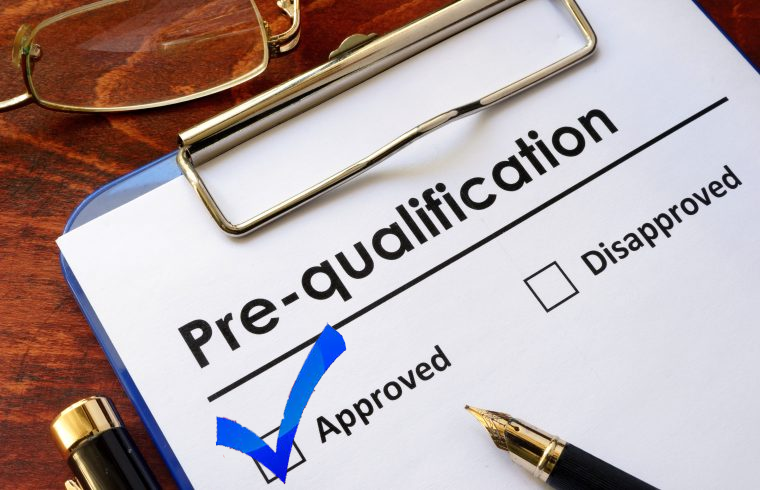Shares|ShareTweet Millennials Money Tips & Financial Strategy for the Modern World Hey there, folks at moneyparade.com here. We’re all about helping the young guns – millennials and Gen Zers – get their finances in order. Let’s face it, some of those old-school money tips just don’t cut it anymore. So, we’re gonna break down why some of these outdated ideas are getting the cold shoulder from younger generations, and offer up some fresh takes that actually make sense in today’s world. Our aim? To help you make your money work for you, no matter where you’re at in life.In this…
Mortgage Pre-Approval: What Is It and How Does It Work?

Buying a home is an exciting milestone, but it can also be a complex and overwhelming process. One of the most important steps in buying a home is getting pre-approved for a mortgage. In this article, we’ll explain what mortgage pre-approval is, why it matters, and how to improve your chances of getting approved.
What is Mortgage Pre-Approval?
Mortgage pre-approval is the process of applying for a mortgage and receiving a conditional commitment from a lender. This commitment is based on an assessment of your creditworthiness, income, and other factors that impact your ability to repay the loan. Pre-approval gives you an idea of how much you can afford to borrow, and it can help you make a stronger offer when you find a home you want to buy.
Why Mortgage Pre-Approval Matters
Mortgage pre-approval is important for several reasons. First, it helps you understand how much home you can afford. This is important because it can help you avoid the disappointment of falling in love with a home that’s outside of your budget. Second, it can help you make a stronger offer when you find a home you want to buy. Sellers are more likely to accept an offer from a pre-approved buyer because they know the buyer is serious and has the financial means to complete the transaction. Finally, pre-approval can help you close your loan faster because much of the underwriting work is done upfront.
Factors That Affect Mortgage Pre-Approval
Several factors can impact your ability to get pre-approved for a mortgage. These include:
- Credit score: Your credit score is one of the most important factors in the mortgage pre-approval process. A higher credit score can increase your chances of getting approved and can also result in a lower interest rate.
- Debt-to-income ratio (DTI): Your DTI is the ratio of your monthly debt payments to your monthly income. A lower DTI can increase your chances of getting approved because it indicates that you have more disposable income available to repay the loan.
- Employment history and income: Lenders typically prefer borrowers with a stable employment history and a steady source of income.
- Down payment and cash reserves: A larger down payment and more cash reserves can increase your chances of getting approved because it shows the lender that you have a financial cushion in case of unexpected expenses.
Common Mortgage Pre-Approval Mistakes
There are several common mistakes that borrowers make during the mortgage pre-approval process that can impact their chances of getting approved. These include:
- Not shopping around for the best lender: It’s important to shop around and compare rates and terms from multiple lenders to ensure that you’re getting the best deal.
- Making big purchases or opening new credit accounts: This can impact your credit score and your DTI, which can lower your chances of getting approved.
- Being dishonest or withholding information: It’s important to be honest and transparent about your financial situation during the pre-approval process. If you’re caught lying or withholding information, it can impact your chances of getting approved and can also result in legal consequences.
Expert Opinions and Studies
According to a study by the Consumer Financial Protection Bureau, borrowers who get pre-approved for a mortgage are more likely to close their loan on time and less likely to experience surprises during the underwriting process. Additionally, the study found that pre-approval can help borrowers save money on their mortgage by negotiating lower interest rates.
Karl Jacob, CEO of LoanSnap, a digital mortgage lender, says, “Getting pre-approved for a mortgage is an essential first step in the home buying process. It gives you a competitive advantage over other buyers in a hot real estate market. It allows you to make an offer on a property with confidence, knowing that you have the financial backing to close the deal. Plus, it helps you avoid disappointment by ensuring that you only look at homes that are within your budget.
Another factor that lenders look at when determining pre-approval is your employment history. They want to make sure that you have a stable job and income to be able to repay the mortgage. You will need to provide at least two years of employment history and pay stubs as proof of income.
Credit score is also an essential factor that lenders consider when pre-approving you for a mortgage. It is a numerical representation of your creditworthiness and financial history. A higher credit score generally means that you are a lower risk borrower, making it more likely that lenders will pre-approve you for a mortgage.
If you have a low credit score, you may still be able to get pre-approved, but you may have to pay a higher interest rate. Conversely, if you have an excellent credit score, you may be able to negotiate a lower interest rate, saving you money over the life of the loan.
It is important to note that mortgage pre-approval is not a guarantee of funding. It is an estimate based on the information you provide, and the lender may require additional documentation or reassessment of your finances before approving the loan.
In conclusion, mortgage pre-approval is an essential step in the home buying process. It provides you with a clear idea of how much you can afford and helps you narrow down your home search. Remember to gather all the necessary documents and speak to multiple lenders to get the best possible pre-approval terms. With the right preparation, you will be on your way to owning your dream home.
FAQs:
- How long does mortgage pre-approval last? Mortgage pre-approval typically lasts for 60 to 90 days, depending on the lender. After this period, you may need to reapply for pre-approval.
- What happens after mortgage pre-approval? After mortgage pre-approval, you can start shopping for homes within your budget. Once you find a home, you can submit a formal mortgage application to the lender.
- Can mortgage pre-approval affect credit score? Mortgage pre-approval typically involves a hard inquiry on your credit report, which can temporarily lower your credit score. However, if you apply for pre-approval with multiple lenders within a short period, it will only count as one inquiry.
- What documents do I need for mortgage pre-approval? You will need to provide proof of income, employment history, credit score, and other financial documents. Specific requirements may vary depending on the lender.
- Is mortgage pre-approval necessary? While not strictly necessary, mortgage pre-approval is highly recommended. It helps you understand your budget and lets sellers know that you are a serious buyer. Additionally, pre-approval can give you an advantage in a competitive housing market.
Refinancing: A Complete Guide to Lowering Your Monthly Payments





